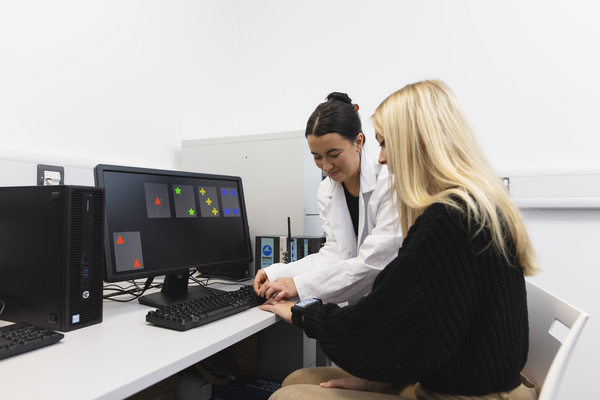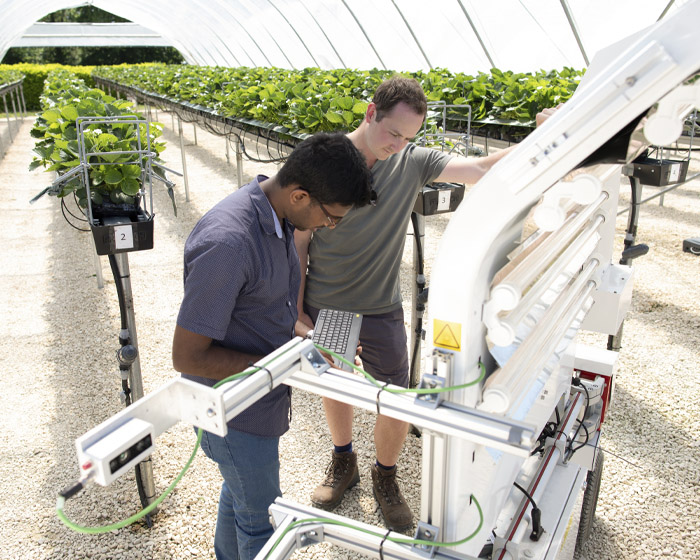AHRC Collaborative Doctoral Partnership (CDP) studentship – ‘Courting Magnificence: The Materiality of Late Medieval Queens’ Households’ with Historic Royal Palaces
Start date: 1 October 2024
Application Deadline: Wednesday 15 May 2024 at 5pm (GMT)
Interviews will take place on Monday 3 June 2024
The University of Lincoln and Historic Royal Palaces are pleased to announce the availability of a fully funded Collaborative doctoral studentship from October 2024 under the AHRC’s Collaborative Doctoral Partnerships (CDP) scheme.
This collaborative project examines how their gender and ‘foreign’ backgrounds influenced the identity, conspicuous consumption, and materiality of three English queens consort - Eleanor of Castile (d.1290) and Margaret of France (d.1318), Queens of King Edward I, and Isabella of France (d.1358), Queen of King Edward II - as they were expressed through their households in the late thirteenth and early fourteenth centuries.
This project will be jointly supervised by Professor Louise Wilkinson and Dr Laura Tompkins and the student will be expected to spend time at both the University of Lincoln and Historic Royal Palaces, as well as becoming part of the wider cohort of CDP funded students across the UK.
The studentship can be studied either full or part-time.
We encourage the widest range of potential students to study for this CDP studentship and are committed to welcoming students from different backgrounds to apply. We particularly welcome applications from individuals with backgrounds which are currently underrepresented at this level in this area.
Students should have a master's degree in a relevant subject and overseas students are required to demonstrate English language proficiency equivalent to IELTS 7.0 overall, with a minimum of 6.5 in each element.
The studentship is open to both home and international applicants (additional fees apply to international students – see eligibility section below)
Project Overview
Late medieval queens consort occupied a privileged and unique status within the English realm as the wives and mothers of kings. Each queen possessed her own household, separate from that of her husband, which potentially allowed her to develop her own power base at the royal court and to maintain a suitably magnificent lifestyle appropriate for her regal position. This collaborative project between the University of Lincoln’s Medieval Studies Research Group and Historic Royal Palaces examines how their gender and ‘foreign’ backgrounds influenced the identity, conspicuous consumption, and materiality of three English queens consort as they were expressed through their households in the late thirteenth and early fourteenth centuries.
The domestic establishments of Eleanor of Castile (d.1290) and Margaret of France (d.1318), King Edward I’s two queens, and Isabella of France (d.1358), King Edward II’s wife and usurper, are richly documented in extant household accounts preserved in the British Library, the UK National Archives, and the Society of Antiquaries of London, just two of which have been published (those for Eleanor of Castile’s household in 1290 and for Isabella of France’s household in 1311-12). Until now, the contents of these Latin records have never been studied in detail together to interrogate what they reveal about the material construction of queenship, queenly identity, and lifestyles within medieval English royal palaces.
Working under Professors Louise Wilkinson and Amy Livingstone of the University of Lincoln, leading authorities on medieval royal and aristocratic women and their households, and Dr Laura Tompkins and Dr Charles Farris of Historic Royal Palaces (HRP), who have extensive experience in researching late medieval royal household accounts, the doctoral student will undertake the first ever detailed analysis of the extant household accounts of Queens Eleanor of Castile, Margaret of France, and Isabella of France, as a group. They will examine the queens’ diet, lifestyle, dress, treasure, moveable possessions (e.g. manuscripts, textiles, devotional items), and the furnishings of their apartments in royal palaces.
Exploring the personnel and administration of these households will be central to this study, identifying the similarities and differences with the administration of kings’ households. Hitherto, scholarly studies of the materiality of queenly households have focused mainly on the Tudor consorts of King Henry VIII or on the association between individual queens and particular manuscripts, sculptures, or textiles. This groundbreaking project therefore promises to transform our understanding of the artistic, cultural, and spatial environments which late medieval queens experienced, inhabited, and shaped in an era before the Renaissance, when Gothic art and architecture reigned supreme.
The student’s research will play a vital role in Historic Royal Palaces’ knowledge of how the queen’s apartments at the Tower of London may have been furnished and decorated. A UNESCO World Heritage site visited by millions of UK and international visitors each year, ‘The Medieval Palace’ is one of three core stories that audiences experience on site. As part of their studentship, the successful candidate will have the opportunity will have the opportunity to contribute to the interpretation of these spaces and related public engagement outputs, particularly in relation to the female inhabitants of the Tower.
Research Questions Include
- What were the households of late medieval queens like, visually and materially, and what new insights can be gained by comparing them with one another?
- How did the materiality and rhythms of life within these institutions reflect the changing personal interests, dynamism, and identities of these women throughout their lives?
- To what extent did the furnishings, decorative features, and spatial layout of queens’ households shape the perceived magnificence and functionality of the late medieval English royal court and its residences?
- What do records for clothing, jewels, plate, and other objects suggest about the personal preferences of these women as patrons, consumers, ambassadors, and agents for cultural transfer between courts and kingdoms?
- What do records for diet and wellbeing reveal about feasting, fasting, and perceptions of women’s health in courtly circles?
Research with Historic Royal Palaces
This collaborative research studentship project was awarded to Professor Louise Wilkinson of the University of Lincoln and Dr Laura Tompkins of Historic Royal Palaces by the REACH CDP consortium. The award is funded by the Arts and Humanities Research Council (AHRC) and is designed to support the work and strategic objectives of Historic Royal Palaces.
The nature of a Collaborative Doctoral Partnership (CDP) award is that the project is fully collaborative, and the successful student will be expected to spend time carrying out research, undertaking placement activities and participating in wider activities at Historic Royal Palaces’ sites (especially the Tower of London) as part of their studentship. In doing so the student will gain important experience of the professional workplace, with a view to a potential career in the sector.
As well as being part of the wider national CDP cohort, as a REACH CDP award holder the student will also have the opportunity to participate in REACH consortium development activities. The members of the REACH CDP consortium are Historic Royal Palaces, Royal Museums Greenwich/National Maritime Museum, British Film Institute (BFI), the National Portrait Gallery, and the National Trust.
Details of Award
CDP doctoral training grants fund full-time studentships for 4 years or part-time equivalent up to a maximum of 8 years.
The student is required to spend between 3 and 6 months (or part-time equivalent) of their funded period undertaking professional placement or development activities with Historic Royal Palaces or other relevant organisations as agreed between the student and their supervisors.
The award pays tuition fees up to the value of the full-time home UKRI rate for PhD degrees. Research Councils UK Indicative Fee Level for 2024/2025 is £4,786*
The award pays full maintenance for all students both home and international students. The UKRI National Minimum Doctoral Stipend for 2024/2025 is £19,237, *plus a CDP maintenance payment of £600/year, *plus an allowance of £1000/year (London weighting for Historic Royal Palaces).
The student is eligible to receive an additional travel and related expenses grant during the course of the project courtesy of Historic Royal Palaces worth up to £850 per year for 4 years.
The successful candidate will be eligible to participate in events organised for all Collaborative Doctoral Partnership students who are registered with different universities and studying with cultural and heritage organisations across the UK.
Eligibility
- This studentship is open to both Home and International applicants.
- To be classed as a home student, candidates must meet the following criteria:
- Be a UK National (meeting residency requirements), or
- Have settled status, or
- Have pre-settled status (meeting residency requirements), or
- Have indefinite leave to remain or enter
Further guidance can be found here - https://www.ukri.org/wp-content/uploads/2021/02/UKRI-030221-Guidance-International-Eligibility-Implementation-training-grant-holders-V2.pdf
- International students are eligible to receive the full award for maintenance as are home students. They will need to pay themselves the difference between what the AHRC provide to the university for tuition and the charge made by the university for tuition fees for international students studying for a doctoral degree in Medieval Studies. This for 2024/25 is the tuition fees for international students at the University of Lincoln are £15,900 per academic year for full-time students and £7,950 per academic year for part-time students.
- We want to encourage the widest range of potential students to study for a CDP studentship and are committed to welcoming students from different backgrounds to apply. We particularly welcome applications from students from backgrounds which are currently underrepresented at this level in this area.
- Applicants should have or expect to receive a relevant Masters-level qualification in a relevant subject, such as History, Medieval Studies, Art History, Museum Studies, or Heritage Management. Experience of archival research using original documents and/or knowledge of Latin or French languages is desirable, but not essential.
- Applicants must be able to demonstrate an interest in the heritage sector and enthusiasm for developing experience and skills cognisant with a potential future career in the cultural, heritage, galleries, museums, and archive sectors.
- As a collaborative award, students will be expected to spend time at both the University and Historic Royal Palaces.
N.B. All applicants must meet UKRI terms and conditions for funding. See:
https://www.ukri.org/funding/information-for-award-holders/grant-terms-and-conditions/
Project Details and How to Apply
To apply for this position, please send your CV, cover letter, a sample of your own writing, and EDI Monitoring Form to Professor Louise Wilkinson (medievalstudies@lincoln.ac.uk) with the subject heading “Courting Magnificence CDP Studentship Application”.
Your cover letter should provide: (1) information on how your qualifications and experience are suitable to work on the Collaborative Doctoral Partnership Studentship for ‘Courting Magnificence’; (2) an outline of how you might approach and develop this doctoral project during your four years of study (full-time) or eight years (part-time); and (3) the contact details for two academic references.
Your sample of your own writing may be an essay of around 2,000 words, a dissertation, or an equivalent piece of work.
Applicants are welcome to contact Professor Louise Wilkinson (medievalstudies@lincoln.ac.uk) if they have any questions.


/prod01/university-of-lincoln-cdn-pxl/media/responsive2017/research/newresearch/Studentships,banner2,1600X600.jpg )
